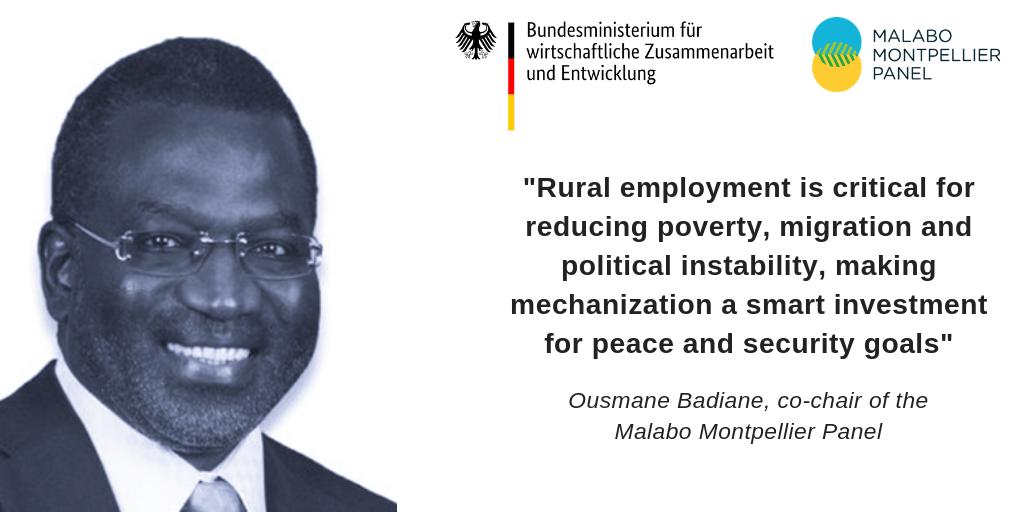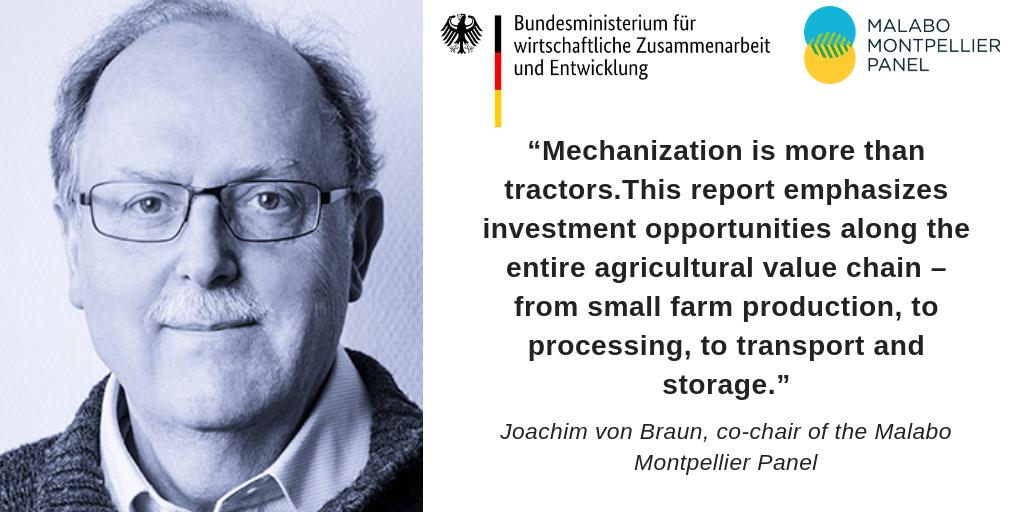20 February 2019. Berlin, Germany.
Mechanization of African Agriculture - Does it Create or Destroy Jobs? Launch of the german version of the MaMo Mechanized Report.
"Innovation Dialogue - on the Future of Rural Areas of Africa" is being commissioned by the Federal Ministry for Economic Cooperation and Development (BMZ) and within the framework of the Special initiative ONE WORLD without
 |
| #Mechanization can create jobs if done right such as investing in skills development and trainings together with mechanization, said ZEF director #Joachimvonbraum now at the @MamoPanel in Berlin. @BMZ_Bund #InnovationDialogue @ZEFbonn @HelloTractor @Welthungerhilfe |
The study testifies to considerable increases in productivity by agricultural machinery and shows: Mechanization can certainly lead to more employment.
How and under what conditions does this work in smallholder African agriculture?
What possibilities does an inter-company use offer?
The panel discussed this with:
- Gunther Beger, Head of Department in the BMZ
- Ousmane Badiane, IFPRI, Director for Africa
- Frank Nordmann, Grimme Agricultural Machinery
- Jehiel Oliver, Hello Tractor
- Jochen Moninger Deutsche Welthungerhilfe
- Joachim von Braun, University of Bonn.
The report — Mechanized: Transforming Africa’s Agriculture Value Chains (55 pages) —summarizes the findings of a systematic analysis of what countries at the forefront of progress in mechanization have done right. It analyzes which policy decisions were taken and which interventions were implemented to substantially increase the uptake of mechanization.
The German translation of this report is: MECHANISIERT Transformation der landwirtschaftlichen Wertschöpfungsketten Afrikas
The German translation of this report is: MECHANISIERT Transformation der landwirtschaftlichen Wertschöpfungsketten Afrikas
- The report takes a broad perspective on mechanization, including technologies along the entire value chain and how they relate to agricultural development and job creation.
- The report shows what can be done to sustainably mechanize agriculture to increase production and enhance value addition across value chain segments. The set of policies and practices that are identified, if brought to scale, could have significant impact on agricultural transformation in Africa.
- The report provides a roadmap for African governments to take concerted action to deliver on the growth and transformation targets set out by the Malabo Declaration and the Sustainable Development Goals.

The seven recommendations set out by the report are:
- Develop national agricultural mechanization investment plans that form part of countries’ National Agriculture Investment Plans
- Focus on mechanization pathways and strategies that generate new employment opportunities
- Prioritize mechanization along the entire food value chain, not just at production level
- Invest in supporting infrastructure, such as irrigation systems and electricity grids
- Incentivize the private sector to invest in mechanization through tax waivers and smart subsidies
- Use public-private partnerships to develop local machinery industries to ensure the technology is affordable and appropriate
- Provide localized services that match farmer demand with appropriate technologies

Upcoming event:
- Nourished: How Africa Can Build a Future Free from Hunger and Malnutrition (September 2017);
- Mechanized: Transforming Africa’s agriculture value chains (July 2018);
- and Water-Wise: Smart Irrigation Strategies for Africa (December 2018).


No comments:
Post a Comment